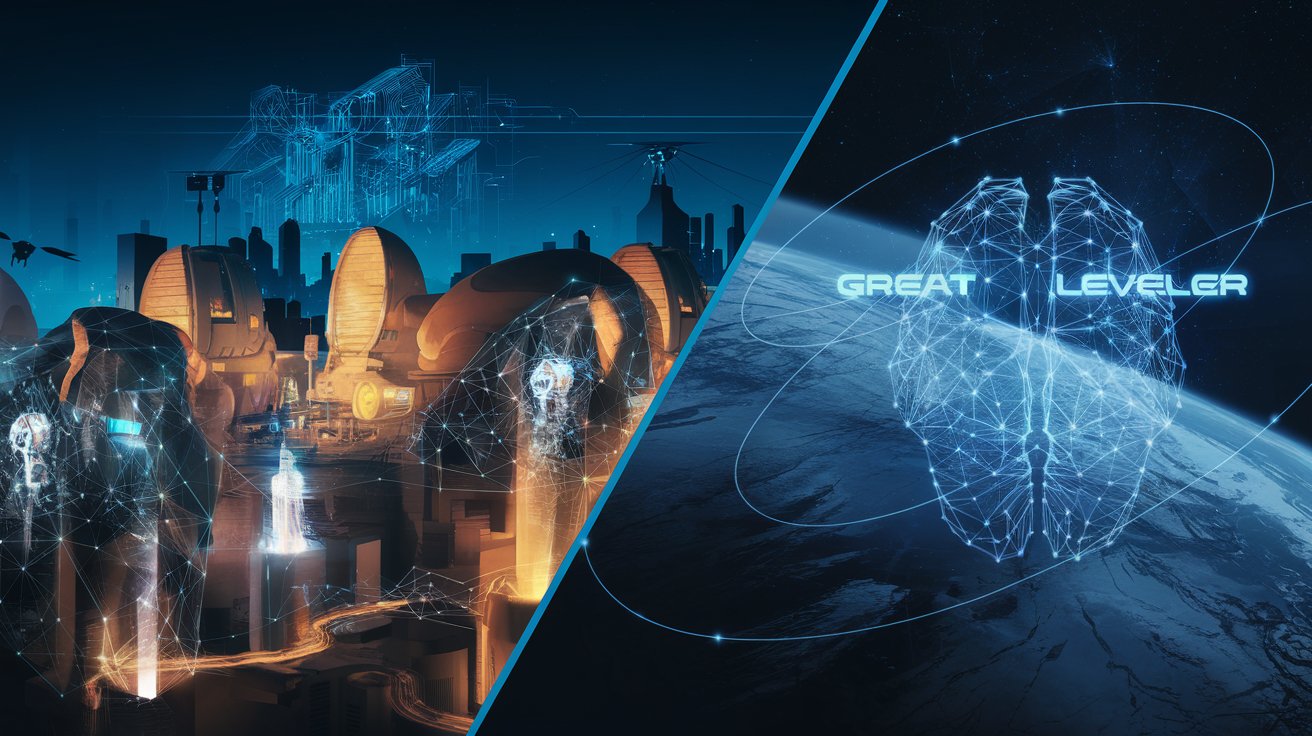1. The Nuclear Renaissance
2025 will mark a pivotal shift in energy dynamics, driven by a surge in demand for nuclear power. Regulatory reforms, public enthusiasm, significant capital investments, and escalating energy consumption—particularly from AI-driven data centers—will converge to reinvigorate the nuclear sector. For the first time in decades, new reactors will be commissioned at scale.
AI’s insatiable appetite for electricity is challenging outdated grids, pushing industries to seek cleaner and more consistent power sources. Decommissioned nuclear plants are already being revived to meet this demand. This evolution not only modernizes energy infrastructure but also aligns with sustainability goals, providing a foundation for the future.
2. The Jobs of the Future
As advanced AI systems integrate deeper into hardware applications, the labor market will experience a renaissance in technical roles. Key areas of growth will include:
Engineering Disciplines: Electrical, mechanical, mechatronics, controls, RF, and industrial engineering roles will see unprecedented demand.
High-Skilled Technicians: Specialists in robotics, automation, and teleoperation will be in high demand to build, maintain, and optimize the next generation of autonomous systems.
Manufacturing and Industrial Expertise: The reshoring of manufacturing and a wave of retirements in industries like water treatment, oil and gas, and HVAC will create openings for highly skilled professionals.
Over the next decade, some of these sectors may outpace traditional software engineering in growth, redefining career landscapes.
3. -
4. Earth Observation’s Untapped Potential
The number of Earth observation satellites has more than doubled in five years, yet the commercial potential remains underexploited. By 2025, latent satellite data could become a cornerstone for urban planning, supply chain management, and disaster response. Enhanced accessibility to this data will unlock a wave of innovations in real-time decision-making across industries.
5. AI Video Tools Evolve
AI-driven video creation is set to mature dramatically. By 2025, we’ll see:
Depth in Storytelling: Models capable of generating long-form, context-rich narratives.
Specialization: Tools tailored for product marketing, cinematic films, hyperrealistic avatars, and other niche applications.
Platform Optimization: Videos fine-tuned for TikTok, YouTube, and the big screen.
This evolution will elevate AI-generated videos from impressive prototypes to transformative art forms, creating massive opportunities for startups in this space.
6. The "AI Brain" Era
AI systems will increasingly function as personal digital brains, analyzing our digital exhaust—from emails to social media—to offer actionable insights. Emerging applications will:
Help users better understand themselves.
Guide communication and decision-making.
Act as infinite memory banks, transforming productivity and personal growth.
These tools will enable a seamless blend of human intuition and machine intelligence, revolutionizing how individuals and organizations operate.
7. Qualitative Data Revolution
AI is transforming the analysis of qualitative data, integrating it with quantitative insights to create powerful new business tools. This shift will:
Streamline complex processes like regulatory compliance.
Enhance consumer experiences by providing tailored, AI-driven support in sectors like finance and insurance.
Enable AI systems to suggest actionable sequences, turning workers into reviewers and strategists.
Over time, these systems will evolve into fully autonomous operating environments, driving efficiency across industries.
8. AI Copilots for Every Role
2025 will herald the age of AI copilots. These systems will:
Handle tedious tasks, freeing workers for creative and strategic pursuits.
Ingest and analyze data across systems, offering actionable recommendations.
Enable roles like virtual sales representatives to thrive, transforming low-margin industries into scalable, high-margin opportunities.
As AI copilots gain trust, they will shift from assistive tools to autonomous agents, fundamentally reshaping white-collar work.
9. Immersive AI Companions
Next-generation AI companions will evolve to have their own inner worlds—complete with virtual friends, motivations, and dynamic interactions. Drawing inspiration from video games, these companions will:
Engage users with purposeful, quest-driven conversations.
Introduce interconnected virtual ecosystems.
React to news, emotions, and user input in lifelike ways.
These advancements, powered by generative AI and XR technologies, will redefine human-computer interaction, making it more immersive and personal.
10. On-Device AI Dominance
AI will shift from the cloud to devices, enabling real-time processing and enhanced user experiences. By 2025:
Smartphones and IoT devices will host advanced AI models for instant responsiveness.
Applications will integrate AI directly, from drafting emails to editing photos.
Smaller, powerful models will make AI ubiquitous across devices, offering seamless interaction and speed.
11. The Battle for Search
Search engines as we know them are under threat. Chatbots and AI-driven platforms are reshaping how users find information, emphasizing depth and actionable insights over cluttered results. Startups that integrate domain-specific AI will lead this revolution, offering more efficient and effective search solutions.
12. AI’s Golden Era for Sales
Generative AI is poised to revolutionize sales, enabling organizations to:
Automate administrative tasks.
Optimize workflows with tailored AI solutions.
Focus on consultative, high-touch selling that AI cannot replicate.
By blending large models with specialized systems, the next decade will see sales teams harness AI to unlock unprecedented efficiency and growth.
As 2025 approaches, these trends forecast a transformative era where AI will reshape industries, create new opportunities, and redefine the boundaries of human potential.

